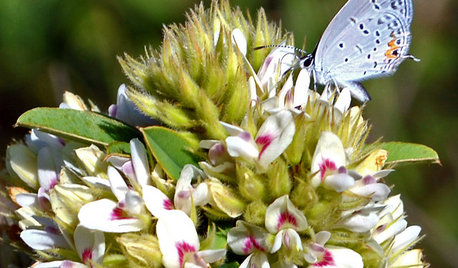Can plasticulture be organic?
Michael
9 years ago
Related Stories

KITCHEN DESIGN6 Clever Kitchen Storage Ideas Anyone Can Use
No pantry, small kitchen, cabinet shortage ... whatever your storage or organizing dilemma, one of these ideas can help
Full Story
BOOKSCan Tidying Up Result in Life-Changing Magic?
Organizing phenom Marie Kondo promises big results — if you embrace enormous changes and tough choices
Full Story

MORE ROOMSCool Shelves You Can Make With Stuff From the Garage
Idea of the Week: The guys behind The Garage Slab turn salvage wood and pipe into industrial-chic bar
Full Story
DECORATING GUIDES15 Bite-Size Home Projects You Can Tackle in No Time
See how getting little decorating, cleaning and organizing tasks done can add up to a big sense of accomplishment
Full Story
CLOSETSThe Cure for Houzz Envy: Closet Touches Anyone Can Do
These easy and inexpensive moves for more space and better organization are right in fashion
Full Story
MUDROOMSThe Cure for Houzz Envy: Mudroom Touches Anyone Can Do
Make a utilitarian mudroom snazzier and better organized with these cheap and easy ideas
Full Story
HOME OFFICESThe Cure for Houzz Envy: Home Office Touches Anyone Can Do
Borrow these modest design moves to make your workspace more inviting, organized and personal
Full Story
GARDENING GUIDES5 Prairie Wildflowers That Can Heal Your Soil
Get free, organic soil fertilizer with nitrogen-pumping plants that draw pollinators too
Full Story
DREAM SPACESWe Can Dream: A Grand Guesthouse for Events and Luxurious Stays
Discover this Connecticut dream guesthouse with a French twist
Full Story




MichaelOriginal Author
little_minnie
Related Discussions
Are there any studies into organic vs non-organic methods
Q
Composting non-organic veggie scraps for organic garden
Q
Organic vs. non-organic growing
Q
Red plastic mulch for "Plasticulture" in Denver?
Q
Kimmsr
Lloyd
pnbrown
little_minnie
MichaelOriginal Author
MichaelOriginal Author
little_minnie
Lloyd
MichaelOriginal Author
wayne_5 zone 6a Central Indiana
david52 Zone 6
little_minnie
Kimmsr
wayne_5 zone 6a Central Indiana
MichaelOriginal Author
david52 Zone 6
little_minnie
pnbrown
Kimmsr
strobiculate
david52 Zone 6
renais1
renais1
wayne_5 zone 6a Central Indiana
MichaelOriginal Author
little_minnie
MichaelOriginal Author
renais1
little_minnie
Kimmsr
wayne_5 zone 6a Central Indiana
User
pnbrown
MichaelOriginal Author
wayne_5 zone 6a Central Indiana
wayne_5 zone 6a Central Indiana
little_minnie
MichaelOriginal Author
pnbrown
MichaelOriginal Author
MichaelOriginal Author
User
MichaelOriginal Author
User
pnbrown
User
wayne_5 zone 6a Central Indiana
MichaelOriginal Author